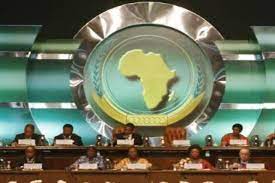APA-Addis Ababa (Ethiopie) The pan-African organisation faces a number of challenging issues in its member states in 2024.
The 37th Ordinary Summit of the African Union (AU) opens on Thursday, 14 February, in Addis Ababa, the Ethiopian capital, against a backdrop of multiple challenges and crises facing the continent.
The summit, which closes next Sunday, marks a crucial stage for the pan-African organisation, as all attention turns to the election of its new chair for 2024.
The Mauritanian Mohamed Ould Cheikh El Ghazouani is tipped to replace the Comorian Azali Assoumani.
The election of the next chairperson of the AU will put an end to several months of intense negotiations, offering the organisation the opportunity to avoid an internal crisis that could have compromised its cohesion and effectiveness in resolving continental problems.
Among the burning issues on the summit agenda is the political crisis in Senegal. President Macky Sall’s postponement of the presidential election, with only three weeks to go, has plunged the country into an unprecedented political confusion.
This delicate situation in Senegal underlines the importance for the AU to find appropriate ways to promote democracy and respect for electoral processes on the continent. This year, 19 presidential or general elections are scheduled across Africa.
However, some countries will be absent from the summit debates, following their suspension due to coups. Gabon and Niger, as well as Mali, Guinea, Sudan and Burkina Faso, have been suspended since 2021 and 2022, underlining the continuing challenges to governance and political stability in some regions of Africa.
Despite these crises and tensions, Africa is showing increasing ambition on the international stage, symbolised by its membership of the G20 in September 2023. However, this integration raises questions about the role that the pan-African organisation intends to play on the global stage.
“The AU will become a player in international politics. But which player, wonders Paul-Simon Handy, the Regional Director for EastAfrica at the Institute for Security Studies (ISS), expressing his views on the issues and expectations surrounding this new dynamic..
DS/AC/Los/fss/as/APA


